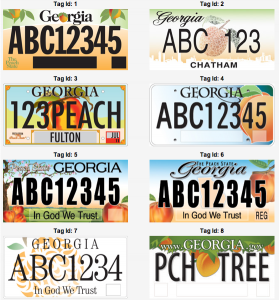November 6 there will be a proposed constitutional amendment to the Georgia state constitution (Georgia Charter Schools Amendment 1) on the ballot that would grant the General Assembly the authority to create charter schools directly, thus bypassing creation by the local school board. This activity had been found to be unconstitutional in a May 2011 ruling by the Georgia Supreme Court – hence the amendment to make it constitutional. This amendment is quite the conundrum: voting yes would marginally increase school choice at the expense of creating an entirely new government bureaucracy to oversee “state” charter schools. However voting no would prevent new bureaucracy, but at the expense of continuing to maintain the monopoly privilege of the local school system. A bit like trying to decide if I would prefer to be kicked in the mouth or the stomach.
When the positions of both sides are contrary to the principles of a free society it makes it that much easier to pick apart their rhetoric. The argument from the pro camp is essentially that in order to increase choice we need to just stop pouring money into the current (local) system, and now pour money into an entirely new (state) system. Trust us. We know what we’re doing. They claim it will not divert money from the local schools, and that is true, to an extent, as the amendment makes specific mention of non-diversion of funds. However, it is laced with qualifying language such as “prohibits…deduction of CERTAIN state funds from local school districts”. Funds are fungible, although non-discretionary funding may not be touched, there is no doubt that discretionary funding will magically become scarcer. And when that happens you will have one side shouting “draconian cuts!” and the other “no change in funding!” and both would be correct. Is it any wonder voters are turned off by the political process?
The con side is just as bad. They employ the same anti-competitive rhetoric usually reserved for discussions of vouchers. Charters are evil because the competition they would engender results in (a) wasteful duplication of effort and (b) would siphon money away to evil non-local “for profit” school organizations. So I suppose then it would be an equally good idea if we were to outlaw private groceries and establish a local government run “food board” that monopolistically sells food to citizens in its region in order to eliminate duplication of effort and the export of “local money”. It’s much easier to misdirect the spotlight from one’s own pro-monopoly rhetoric if it is draped in anti-local jingoism. I guess a local monopoly is preferable to “foreign” competition.
The perplexing part is that both sides are right and wrong. Both local control and more choice ARE better, but monopolistic trusts and bureaucratic government programs are not the way to achieve those goals. The truly hypocritical position lies with the local school boards that take great offense at the state intruding into their perceived power domain, however, they have no qualms about intruding into a parent’s right to have ultimate control over their child’s education. A true advocate of local control defends the rights of the most local decision makers: the parents. Parents have the right, not the privilege, of deciding how their children will be educated – without being required to suffer the diminishment of choice via the act of reaching into the parent’s wallet in order to pay for the choice already made for the parents by the school board.
In the end I reluctantly recommend a “no” vote if only to send a message to the legislature that we want better legislation. We do not need more government control of the education market, we need less. We need an option that provides for less outside control and more local control, control by the parents.

